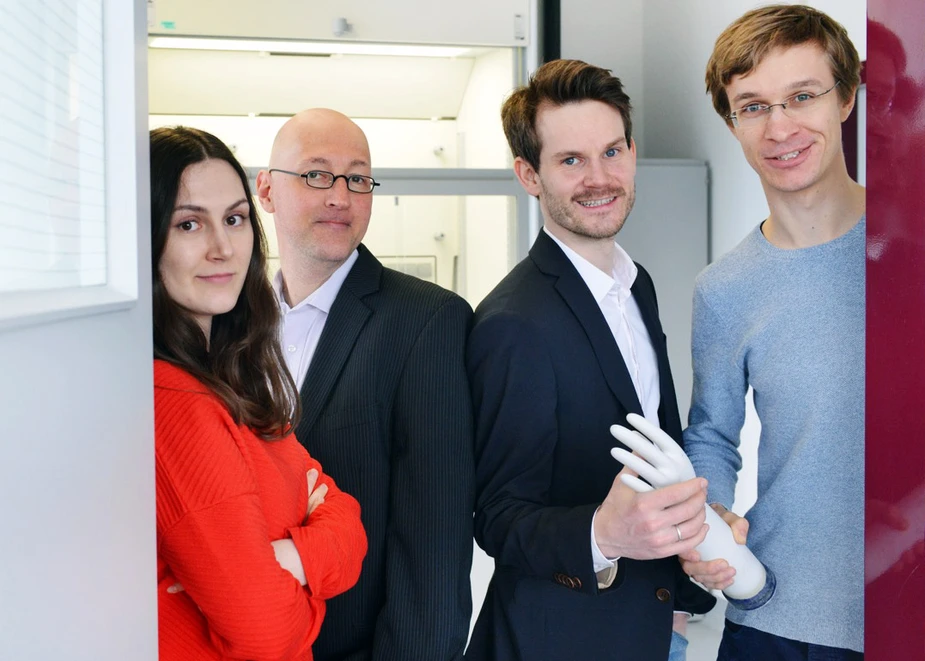Surgical Security
New gloves developed by “Smarterials Technology” will prevent needlestick injuries
Probably the dearest wish of patients and relatives before the door to the surgery closes is that everything may go well. But not only patients, but doctors are also dangerously exposed. “An estimated half a million injuries brought about by needlesticks are registered in German surgeries per year,” says PhD materials scientist Nikolaus Mirtschin, who is one of the co-founders of the company Smarterials Technology. After its founding in October 2016 at the Humboldt-Universität zu Berlin (HU), the start-up first moved to the Inkulab at Berlin’s Technical University for six months, followed by the Adlershof-based start-up centre in April 2017. The business idea was developed by the physicist Martin Bothe, who had registered the patent for optimizing surgical gloves during his doctorate in cooperation with the BAM Federal Institute for Materials and Testing.
The relevance of better protection of medical staff is underscored, for one, by the costs for a needlesticks, which are estimated at 1,600 euro. Secondly, and more importantly, the injury leads to 400 annual infections with hepatitis B and C as well as HIV and other dangerous viruses. The patients, on the other hand, are also in danger if, for example, germs find their way into the body through perforated gloves.
“Currently, protection comes from gloves made of latex or synthetic rubber, which are often coated twice. Some manufacturers offer a double glove solution, where the inside layer is dark and the outside light. If the glove is perforated and blood or other liquids seep in, this is highlighted by a dark stain. Larisa Schmidt wants to improve this method and its uncertain indication by adding modified solid particles. The young chemist earned a PhD at the HU. Her dissertation dealt with the synthesis and characterisation of inorganic particles in medicine. Now she wants to find out how to improve protective properties of surgical gloves by coating latex materials.
The founders of Smarterials, which also includes financial expert Michael Schneiker, aim at ensuring protection against needlesticks with a single, custom-shaped glove. In a stressful operating situation, it is beneficial having to wear only one glove, which is particularly secure and sturdy, especially in areas most prone to pricks like the thumb, the index finger and the palms. An additional benefit is that the glove of Smarterials is thinner than wearing two latex gloves, resulting in an improved sense of touch for the surgeon.
The surgical gloves from Adlershof will have passed all the tests required for a medical product by the end of 2018. “Sales will start in 2019,” says Schneiker. The economist is optimistic about the product’s market chances. There are about 16 million surgical procedures in Germany alone and the Smarterials product is safer and cheaper than the double-coated latex glove that are currently in use.
By Paul Janositz for Adlershof Journal
